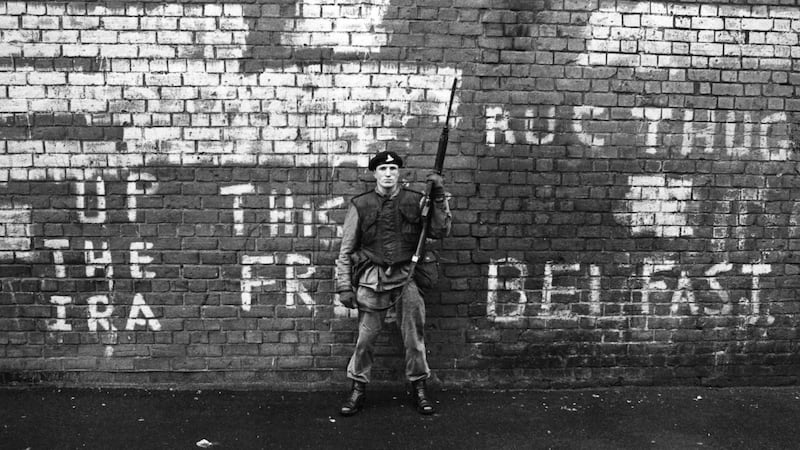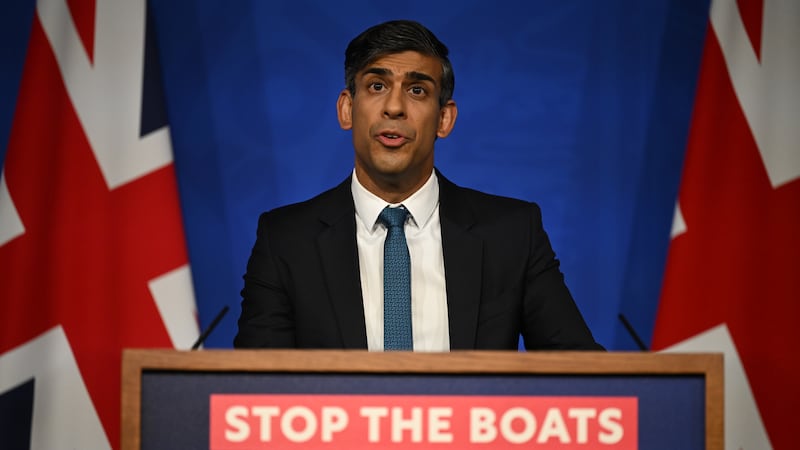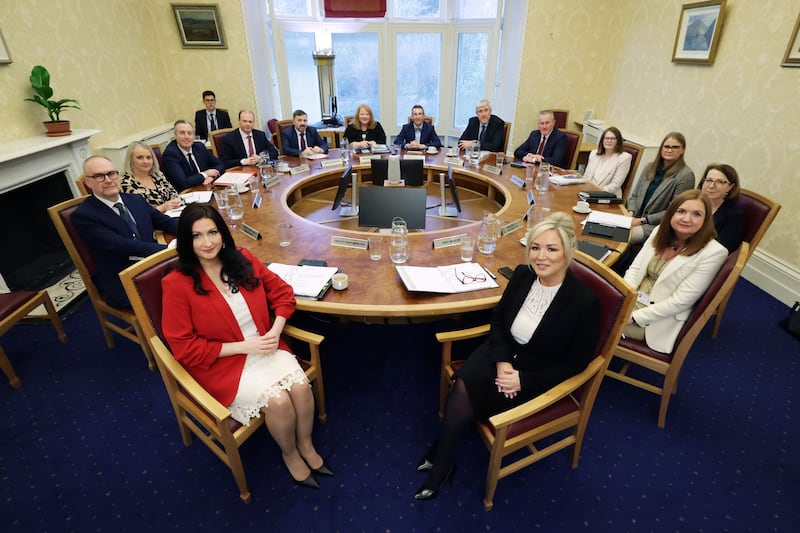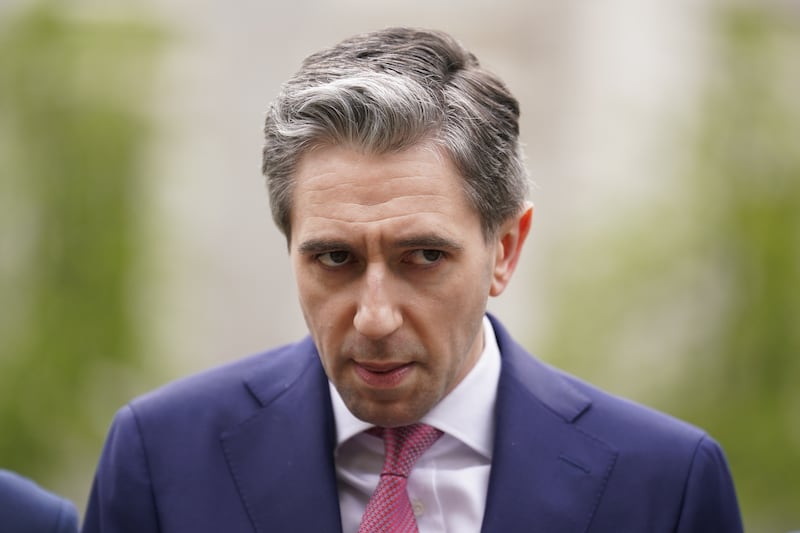Sinn Féin welcomes analysis and criticism of our strategies and positions. Only through debate and discussion, and ultimately the widest possible support for sensible strategies, will we be in a position to deliver. Analysis and criticism must be logical though.
Patrick Murphy (May 14) appears to dismiss the Good Friday Agreement as underwriting partition.
Yes, partition remains but as a result of the Good Friday Agreement the union is no longer unconditionally upheld in British law, and the British government is now obliged to legislate for Irish unity when a majority wants it.
Mr Murphy dismisses Sinn Féin’s efforts to bring forward a Green Paper on Irish unity in the Oireachtas, failing to recognise the need and responsibility to prepare in practical ways for such an eventuality.
He also claims that by acknowledging the reality of many unionists’ self-description as British, that republicans have abandoned the political argument for Irish unity.
But Sinn Féin seeks a united Ireland that is inclusive of all our people, whatever background or tradition. Unionists who seek to express a British identity should and can be accommodated in such an Ireland.
Mr Murphy also rejects efforts to define what a future united Ireland might look like. This fails to understand the concept of a genuinely united and agreed Ireland where discussion of the shape and nature of such a state is essential.
Building a united Ireland is a process. Sinn Féin seeks to popularise the idea as viable, achievable and in the best interests of all and to build a consensus for this.
We want to encourage non-unionist parties and sections of civic society to become persuaders for reunification and to convince a section of currently unionist opinion that their identity, self-interest and quality of life will be best served and guaranteed in a united Ireland.
There are more united Irelanders now than at any time since partition. As a united Ireland party Sinn Féin now gives voice to citizens in every elected institution on this island.
It is only when the issue of a united Ireland is firmly on the political agenda that citizens will engage tangibly with that prospect.
That is why Sinn Féin is campaigning for a referendum on unity. This would provide a unique opportunity for a real, inclusive and constructive debate on the future of Ireland.
Such a debate would focus minds on considering the political, social and economic potential of reunification.
If Britain votes to leave the EU next month there will be a democratic imperative to allow the people of Ireland to vote on reunification.
The tide of history is for all-Ireland integration and the coming together of Orange and Green.
It is important that those who agree on the merits of Irish unity come together and discuss all aspects of the campaign to end partition.
We need to work together, debate with each other and, yes, challenge each other.
MATT CARTHY MEP
Sinn Féin, Midlands North West
Signed agreements have put united Ireland on back burner
Gerry Adams last month launched a broadside at the SDLP et al for deciding not to participate in the next power sharing executive, stating that power sharing was hard won. This nauseating revisionism is growing in Sinn Féin where the trend seems to be that the conflict was about nationalists being treated as second-class citizens in a unionist statelet and rectifying that.
Yes, it is true that since partition nationalists/republicans were treated as second class but the IRA’s campaign was not about achieving equality under British rule, it was about achieving independence from British rule.
For those younger followers of Sinn Féin let me point out that power sharing was achieved in 1974 but Sinn Féin was opposed to it. All those volunteers who died between 1974 and 1998, and all those who died as a result of IRA actions were not victims of people seeking power sharing but were victims of a conflict where republicans regarded British rule as illegitimate.
For Gerry Adams and McGuinness to portray the struggle as one where nationalists were simply trying to assert their civil rights is a gross misrepresentation but one that they use constantly now to discredit those who still believe that Britain’s occupation of Ireland is illegitimate.
But if, as they portray, the struggle was really about equality in a six-county statelet, then let them explain why so many people had to die from 1974. These democrats will have to acknowledge that the IRA had not any democratic mandate to pursue its campaign in 1974 when power sharing was introduced. Will they condemn the IRA’s actions then as illegitimate and, if not, why not?
What makes the IRA then any different than those who might pursue a united Ireland now by physical force actions?
I know the response will be that now, unlike then, a united Ireland can be pursued by peaceful means but the reality is that agreements that Sinn Féin signed up to has put a united Ireland on the back burner and that it has more to do with creating a quiet and peaceful retirement for the leadership of Sinn Féin/IRA, whose self-preservation has always been a priority, more so than the goals that it claimed to be committed to.
SEAN O FIACH
Belfast BT11
SF’s failed promises
The reference in Patrick Murphy’s article (May 14) to the Sinn Féin election poster provided food for thought.
The poster produced for the 1918 elections promised an Irish Republic if people voted for Sinn Féin. The voters did exactly that and voted overwhelmingly for Sinn Féin. When voting they were not to know that three years later Sinn Féin president Arthur Griffith would, as chairman of the Irish delegation, play a significant role in the negotiations in London that produced the Anglo-Irish Treaty and the subsequent division of Ireland.
The outcome should not take away from Griffith’s love for Ireland and its culture and even though the Sinn Féin leader believed in the concept of an Anglo-Irish dual monarchy he is also remembered for his love of Ireland.
The Sinn Féin 1918 promise of a 32-County Irish Republic never materialised and the electorate reacted accordingly. In the 1927 General Election Sinn Féin lost almost 90 per cent of its seats and were reduced to holding a mere five seats.
A truthful analysis of the Republican movement’s record clearly shows that it can still produce fancy expensive posters, making all sorts of promises, but in reality the party and its paramilitary cohorts have, since 1918, been identified with failure after failure and since its foundation it has delivered absolutely nothing but failed promises.
PJ BRADLEY
Newry, Co Down
Losing sight of basic facts
With all the rhetoric generated by the EU Referendum it is easy to lose sight of the basic facts.
Nigel Farage can’t name one serious economic organisation that believes the UK would be better off if we left the EU.
That’s because economic experts from the Bank of England and the IMF to the OECD all say we’re better off in Europe.
The whole EU Referendum has been triggered by a Tory party civil war which has rumbled on for decades.
This struggle is not actually about British sovereignty and definitely not about what is best for the British people, it is a frequently squalid struggle for control of the Tory party, with opportunists using the issue to attack and weaken the prime minister and his allies.
These euro-phobic Tories are in a minority. BNP and UKIP are the only parties to support them.
Every major party wants to stay in.
AP MILROY
Trowbridge, England
Scourge on society
Absolutely shocking pictures of a schoolboy dressed in paramilitary uniform at an illegal parade in Lurgan (May 30).
Everybody in the north wants to live together in peace and harmony. These dissidents want us all to live in the past. They have no support and are not wanted.
They are a scourge on our society.
DERMOT SPOLLEN
Portadown, Co Armagh








